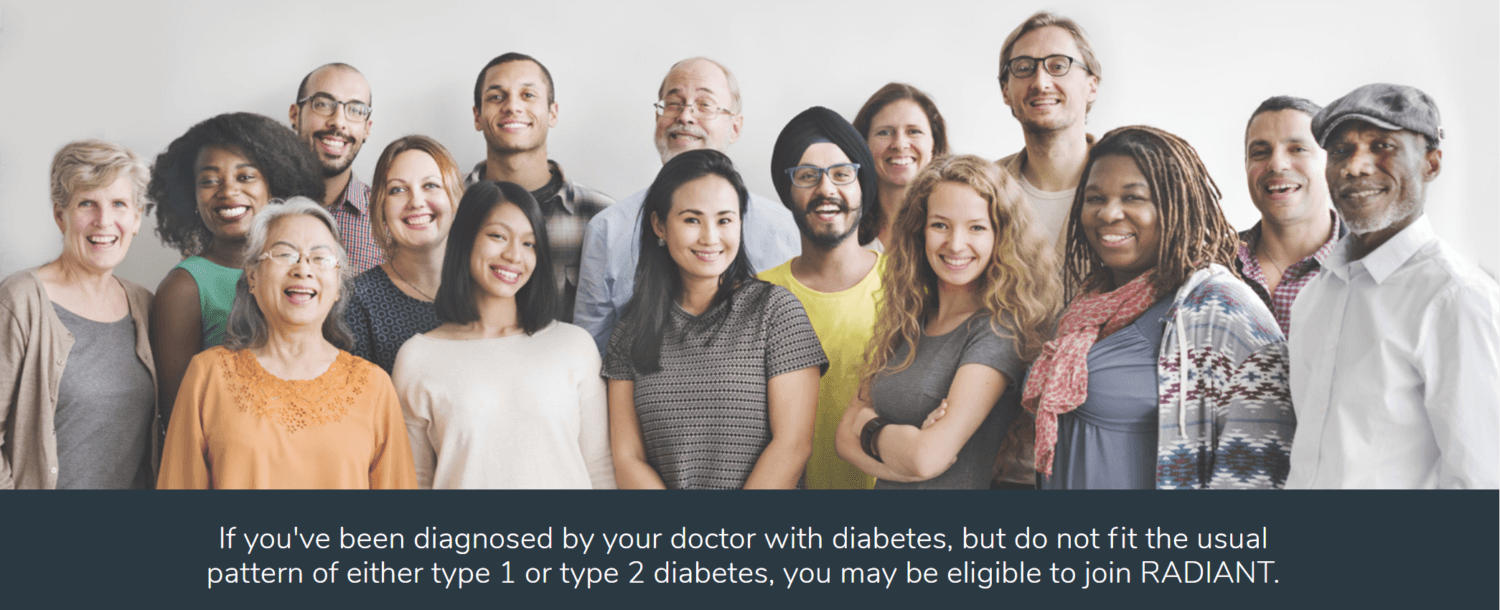
What You Should Know:
– NIH awards funding for Rare and Atypical Diabetes Network, or RADIANT that will seek to discover the cause of several unusual forms of diabetes.
– RADIANT plans to screen about 2,000 people with unknown or atypical forms of diabetes that do not fit the common features of type 1 and type 2 diabetes.
The National Institute of Health (NIH), announced this week it is funding a nationwide study with The Rare and Atypical Diabetes Network (RADIANT) that will seek to discover the cause of several unusual forms of diabetes. For years, doctors and researchers have been stymied by cases of diabetes that differ from known types. Through research efforts at 20 U.S. research institutions, the study aims to discover new forms of diabetes, understand what makes them different, and identify their causes.
Why It Matters
Most forms of diabetes are classified as type 1 or type 2. A greater range of unrecognized types of diabetes likely exists. Most patients with rare forms of diabetes remain undiagnosed and often inappropriately treated. Precise genetic diagnosis of diabetes enables targeted therapy, leads to improved quality of life, and aids in the diagnosis of diabetes in other family members. Currently, patients with atypical diabetes are seen throughout the country, but in a random manner. This makes it challenging for providers and patients to learn from each other.
“It’s extremely frustrating for people with atypical diabetes when their diabetes seems so different and difficult to manage,” said the study’s project scientist, Dr. Christine Lee of NIH’s National Institute of Diabetes and Digestive and Kidney Diseases (NIDDK). “Through RADIANT, we want to help patients and the broader healthcare community by finding and studying new types of diabetes to shed light on how and why diabetes can vary so greatly.”
What is RADIANT?
RADIANT aims to discover and define rare and atypical forms of diabetes. These refined diagnoses will be used by diabetes researchers, physicians, and patients to accurately explain their disease. RADIANT plans to screen about 2,000 people with unknown or atypical forms of diabetes that do not fit the common features of type 1 and type 2 diabetes.
RADIANT Study Approach
RADIANT researchers will build a comprehensive resource of genetic, clinical, and descriptive data on previously unidentified forms of diabetes for the scientific and healthcare communities. The study’s researchers will collect detailed health information using questionnaires, physical exams, genetic sequencing, blood samples, and other tests. People found to have unknown forms of diabetes may receive additional testing. Some participant family members may also be invited to take part in the study.
RADIANT Network Partners
University of South Florida (USF) is the study’s coordinating center, and the lead centers include Baylor College of Medicine in Houston and the University of Chicago. The Broad Institute in Cambridge, Massachusetts, and Baylor serves as the genomic sequencing centers for the project. University of Florida, Gainesville, provides the study’s laboratory services. Other participating centers are:
– Columbia University, New York City
– Duke University, Durham, North Carolina
– Geisinger Health System, Danville, Pennsylvania
– Indiana University, Indianapolis
– Massachusetts General Hospital, Boston
– NorthShore University Health System, Chicago
– Seattle Children’s Hospital, Seattle
– SUNY Downstate Health Sciences University, Brooklyn
– University of Colorado, Denver
– University of Maryland, Baltimore
– University of Michigan, Ann Arbor
– University of North Carolina, Chapel Hill
– University of Washington, Seattle
– Vanderbilt University, Nashville, Tennessee
– Washington University in St. Louis
“The RADIANT study will further clarify diabetes as a disease that has many different forms, and for which diagnosis and management for some of those forms remain a challenge,” said NIDDK Director Dr. Griffin P. Rodgers. “The discoveries of the study should provide critical understanding of the spectrum of diabetes and improve lives of people with rare forms of diabetes and everyone who cares for them.”
